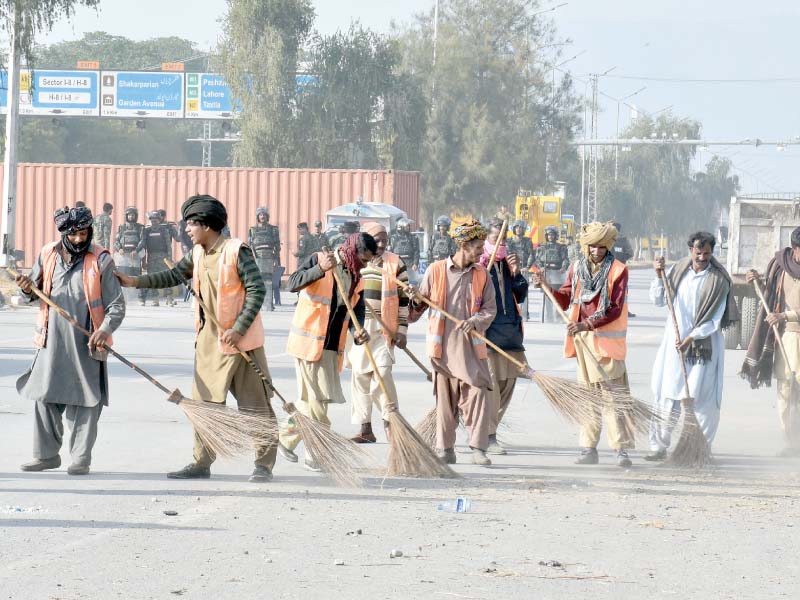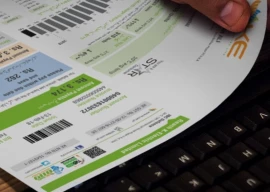
Hundreds of supporters of cleric Khadim Hussain Rizvi and Tehreek-e-Labbaik Ya Rasool Allah (TLYR) had been camped at the Faizabad interchange since November 8. Their blockade and corresponding barricades set up by the police using shipping containers encircling the protesters meant that most of the main thoroughfares linking Rawalpindi with Islamabad and other parts of the country were blocked.
As a result, traffic in the city was chaotic with massive snarl-ups and queues stretching for kilometres. Due to the closure of the major highway, people had to use alternative routes where they had to face massive traffic jams and wait for hours to reach to their desired destinations.
However, after Rizvi announced the deal and end to their protest on Monday morning, residents of the twin cities heaved a collective sigh of relief. The Islamabad Expressway was completely opened for traffic by Monday evening. Grand Trunk Road had also been opened for traffic.
Markets and bus stations around Faizabad started partially functioning by Monday evening.
Other roads blocked by the protesters, particularly Park Road, Lehtrar Road at Tramri Chowk and Murree Road at Bhara Kahu, were also opened for traffic.
As protesters remained at the Faizabad intersection till late on Monday waiting for the release of their comrades, traffic is expected to be completely restored on Faizabad sometime on Tuesday.
It was unclear whether the Metro Bus will restart on Tuesday since the protesters had damaged it during clashes between them and security forces on Saturday.
Residents relieved
As Rizvi officially announced to end the sit-in on Monday morning, social media was flooded with posts in which residents of twin cities expressed their excitement and congratulated each other for surviving the protest.
Most of them had dubbed the sit-in and the government’s abortive attempt to force the protesters off the road as a ‘mess’.
Some even called it the ‘worst nightmare’, referring to the clashes which erupted on Saturday morning and when the government decided to suspend transmission of private news channels followed by the closure of social media websites.
Many had missed their family events, celebrations, flights, offices, schools due to the road closures.
“We felt like hostages as we knew we cannot go out due to the unrest and security situation and cannot get any update on what was happening around the city. It was kind of a mental torture for us,” said Haris Rehman, an engineer and a resident of the capital.
Aliya Rizvi, a business student said, “We felt as if a war was going on in Islamabad and Rawalpindi and were constantly worried about family members who were stuck on the roads soon after the clashes broke out,” she said adding that she had never felt this insecure in Islamabad before. She further said that her mother was a heart patient and every day she used to worry about the route she would have to take to get to the hospital in the event of an emergency.
“After opening our shops during the dharna days, we learnt that it was not worth the risk. Every second we felt as if something bad was about to happen and we had to close our shops and run home,” said Raja Husain, a businessman.
“The fuel expenses of my car had increased manifold as I had to cover extra 20 to 30 kilometres to reach my office located at Zero Point,” said Shabbir Khan, a resident of Jinnah Garden.
Published in The Express Tribune, November 28th, 2017.
1730959638-0/trump-(19)1730959638-0-405x300.webp)
1719925273-0/BeFunky-collage-(46)1719925273-0-165x106.webp)






1730957050-0/Copy-of-Untitled-(17)1730957050-0-270x192.webp)

1730379446-0/WhatsApp-Image-2024-10-31-at-17-56-13-(1)1730379446-0-270x192.webp)






COMMENTS
Comments are moderated and generally will be posted if they are on-topic and not abusive.
For more information, please see our Comments FAQ